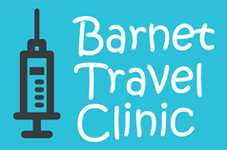Hepatitis ‘A’ is an infection of the liver caused by the hepatitis ‘A virus, The disease is generally mild but severity tends to increase with age. Jaundice may occur in 75% of infected adults.The disease is usually spread through person to person contact or via contaminated food and or drink.
Common sources of infection are shellfish and other seafood that filter polluted sewage filled water, salads and unwashed ground vegetables. It is also spread via faecal-oral route and by injecting drug users. It is often found in developing countries where sanitary conditions are poor and water processes are inadequate.
Symptoms of Hepatitis’A’ may be noticed from around 14 to 28 days (in some cases longer) after contact with the virus. These may include abrupt onset of malaise, nausea and fever. Then followed by jaundice and yellowing of skin and eyes. Children often show no symptoms but the disease can often be severe and even fatal in over 50’s
Travellers should follow strict food, water and personal hygiene precautions.
Hepatitis ‘A’ vaccine may given on its own or often combined with either Typhoid or Hepatitis ‘B’ in a single injection.
A booster of Hepatitis ‘A’ vaccine treatment in UK given 6 – 12 months following will often yield immunity for many years probably over 40 yrs.or even lifetime. Boosters of Hepatitis ‘B’ that may have been combined in the original injection require a different regime. See the Hepatitis ‘B’ section. Typhoid immunity lasts for 3 yrs
There are very few that cannot have the Hepatitis ‘A’ vaccine and any side effects of the vaccine are usually mild.
For best antibody response the vaccine should be given at least 2 weeks but preferably 4 weeks prior to exposure to the disease. But always remember no vaccination is guaranteed to give 100% immunity, you should continue to take all necessary precautions
All vaccinations will only be given once a complete Risk Assessment has been carried out. You will have ample opportunity to ask any number of questions prior to vaccination.
